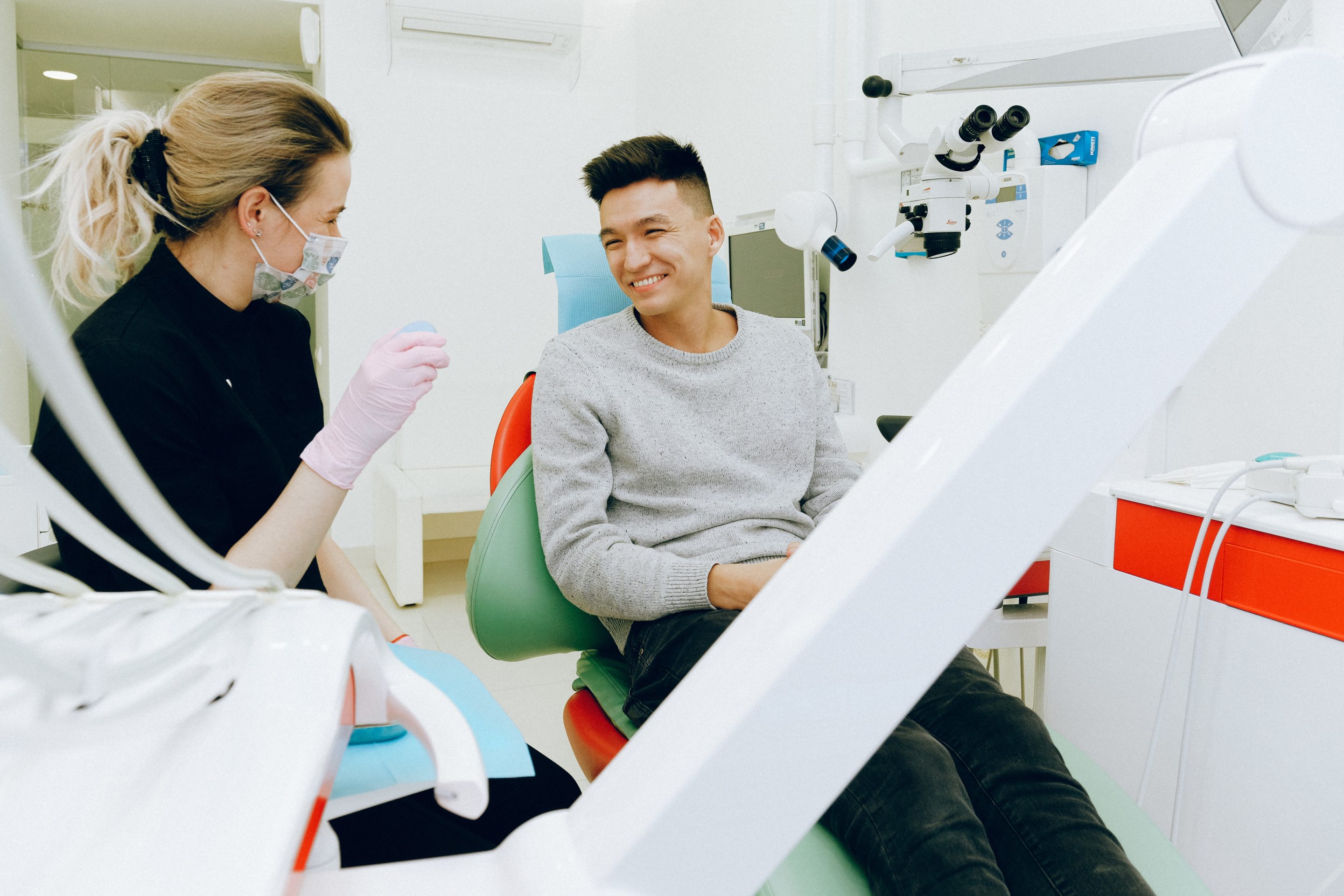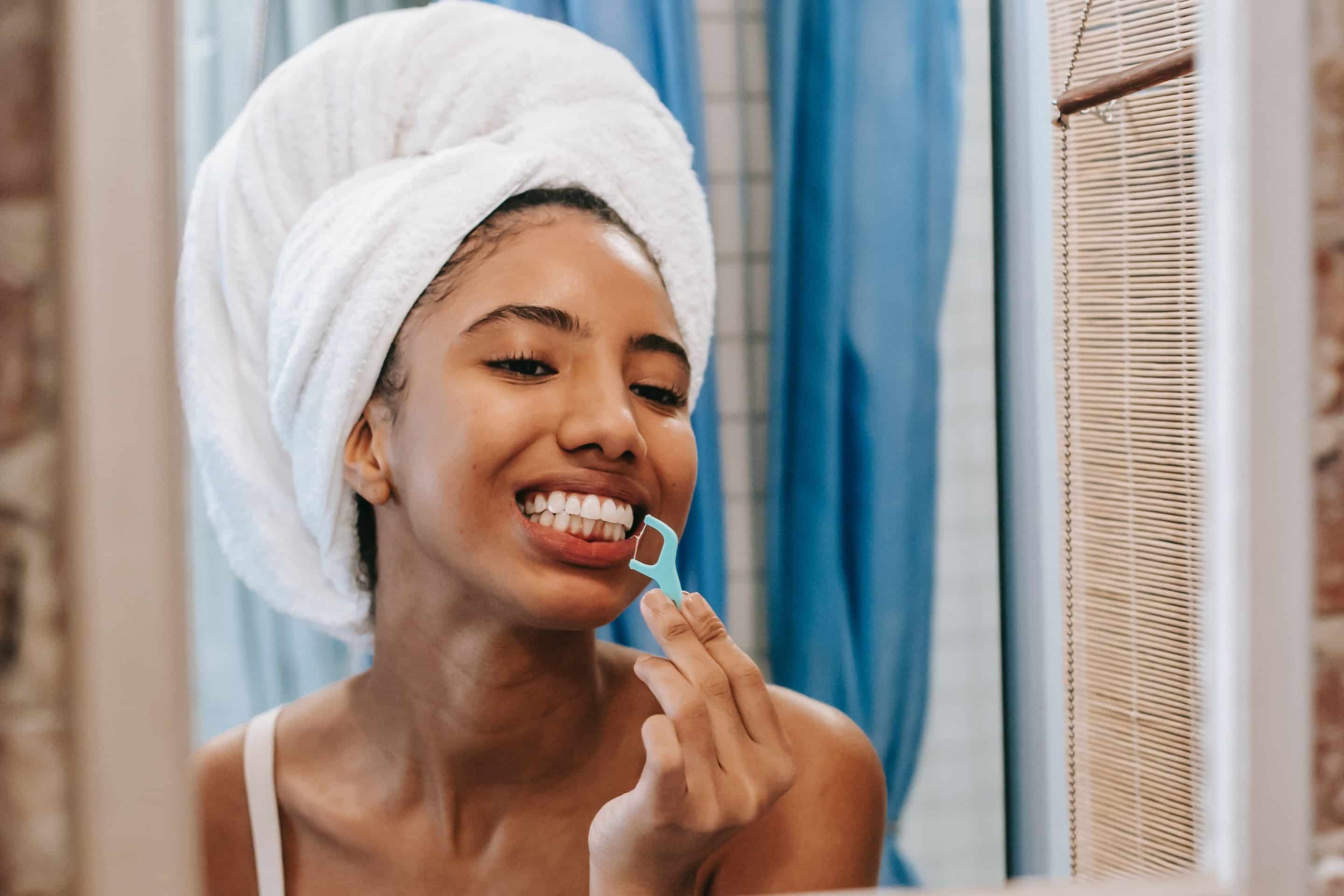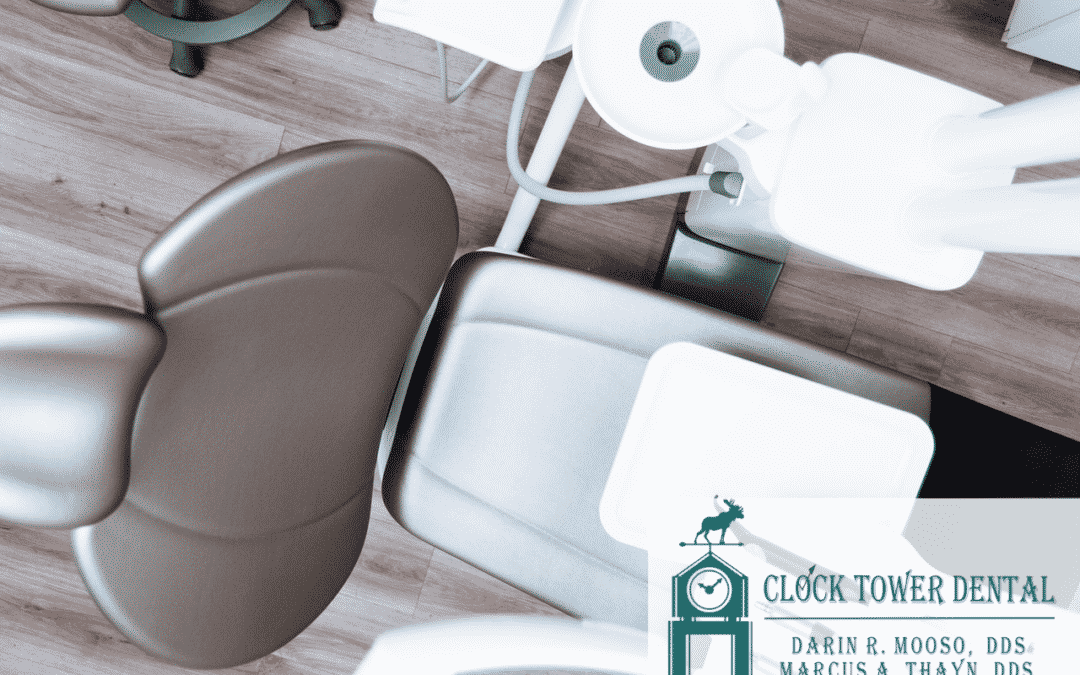In the field of dental health, no two patients are ever alike. While this is a good standpoint to take from the point of view of treatment, it can also lead to misconstrued beliefs that what is best for one person is best for everyone. This sort of thinking leads to all sorts of dental myths that have been spread through the internet and by word-of-mouth.
We want to set the record straight about some of the most common dental myths and misconceptions. We’ll clear up the facts surrounding these myths so you can learn how to get the healthiest smile possible!
1. White Teeth are Healthy
We all know that healthy teeth are white and sparkly, right? Well, unless you happened to win the genetic lottery, not really. Many people with good oral health have yellowed teeth because of their thinner tooth enamel. Dentin, the layer of your tooth that protects the inner pulp, is naturally yellow in color, and it will show through the translucent teeth enamel. Certain foods, like tea and coffee, may also cause your teeth to be stained!
Teeth whitening is also a fairly common practice, with over 14% of Americans undergoing this process to get whiter teeth. Since these shiny, white teeth are not indicative of healthier teeth, dentists will actually look to facts like breath and cavities to determine your overall oral health.
2. Brushing Harder Leads to Healthier Teeth
Sometimes it takes a little bit of elbow grease to get rid of tough stains, but this logic doesn’t apply to brushing your teeth. If you brush too hard, the bristles of your toothbrush can wear down and damage both your gums and your teeth! Doing this can lead to a whole host of problems linked to tooth sensitivity and periodontal disease. You should still be regularly brushing, just make sure you’re gently using a soft-bristled toothbrush.

5. Flossing Creates Spaces Between Your Teeth
When done properly, flossing will not create spaces between your teeth or cause dental work like crowns to shift. Flossing your teeth is an essential part of keeping your mouth healthy, as it removes food particles and food debris from hard-to-reach areas and prevents the buildup of bacteria. You should floss daily before you brush your teeth.
If you floss incorrectly, however, there is a chance you can create a pocket gap between your gum and your tooth. Flossing incorrectly will cause bacteria to live under your tooth and form plaque. If this is left untreated, your gums may recede or pull away, and become breeding grounds for nasty bacteria. Be sure you are following proper flossing guidelines and scheduling regular dental checkups to make sure this does not occur.
3. Bleeding Gums are Normal
Having bleeding gums is technically a common occurrence, but it should not be counted as normal by any stretch of the word. Healthy gums should not be bleeding regularly, and according to the American Dental Association, you should make an appointment if your gums are bleeding regularly enough to worry you. This may be a sign of further dental problems that should be addressed.
The most common reason for blood flow is the buildup of plaque at the gum line that leads to gingivitis. If this is not taken care of it may lead to periodontitis, an advanced form of bone and jaw disease. If you notice frequent blood, schedule a dentist appointment to prevent future issues.
4. Chewing Gum is the Same as Brushing Your Teeth
Chewing gum is perfect when you want a quick way to get fresh breath, but it should never be used to replace brushing your teeth. When you brush your teeth, you get rid of harmful bacteria. You’re also able to get in between your teeth with floss to remove hard-to-reach bacteria. Gum simply just can’t do this.
Chewing gums that are sugar-free can help clean your teeth for short periods of time, though. Gum increases the production of saliva, which in turn reduces plaque and strengthens your teeth. Sugary gum, on the other hand, lowers the pH level of your mouth and makes it more acidic. This acidity can dissolve important materials and lead to cavities. So if you’d like to chew gum, reach for something sugar-free.
6. Only Sugar Creates Cavities
We’re all familiar with the fact that eating sugar creates bacteria that can cause cavities, but sugar is not the only culprit in their formation. If you’ve ever opted for a diet soda because it was sugar-free, we’re sorry to say that it won’t have any beneficial effect on your teeth. Diet sodas are highly acidic, which can erode enamel and make your teeth susceptible to cavities and tooth decay.
This doesn’t mean you need to swear off sugar and sugar-free foods and drinks alike though. As long as you regularly brush your teeth and take good care of your oral health, you’ll be good to go!
7. Your Oral Health Doesn’t Correlate with Your Overall Health
One of the most commonly believed dental myths is that your oral health has little connection with your general health. New developments and past studies alike have shown that both oral and traditional health work together to contribute to your overall wellness. For example, people with oral health problems like gum disease have an increased risk of contracting heart disease or having a heart attack.
Make sure you have good oral health by paying proper attention to your oral hygiene! The rest of your body will thank you.

8. Tooth Loss will Happen with Age
A common misconception is that as you age, your teeth will naturally fall out. While this myth is rooted in fact, it simply isn’t true. Enamel has a tendency to wear down as you get into your senior years, which leaves your mouth more susceptible to tooth decay. Saliva production also tends to dry up, increasing the likelihood of tooth decay as well. However, this doesn’t mean that this decay is inevitable. If you take proper steps to maintain excellent oral health and keep your teeth healthy, you’ll have your teeth well into your golden years!

9. Baby Teeth do not Need to be Taken Care Of
Many people think baby teeth do not need to be taken care of because they will eventually fall out. However, proper dental care for each baby tooth is necessary to ensure the health of permanent teeth in the future. Even though your child will experience baby tooth loss, making sure they have proper oral health will prevent gum disease and allow them to speak and chew properly.
10. If You Are Pregnant, You Shouldn’t Go to the Dentist
It is an old wives tale that you should not go to the dentist when you are pregnant. Going to visit the dentist is both safe and important for your oral health during pregnancy. Plus, it is completely safe to get fillings and regular cleanings while you are pregnant.
However, pregnant women should take care to avoid elective treatments and cosmetic procedures, as they may have a slight risk. Be sure to let your dentist know that you are pregnant, as they will be able to help you deal with any pregnancy-related dental symptoms.
11. If Nothing Hurts, You Don’t Need to Go to the Dentist
We all know that if you have mouth pain, you need to go to the dentist. However, regular dental check ups are an absolute must to maintain your well-being. At your dental check up, your dentist will scrape off any hard tartar buildup on your teeth, and check for any signs of gum disease. Your dentist will also see if you have cavities or tooth decay, both conditions with symptoms that may not cause pain.

12. If You Brush Well Enough Before Your Appointment, Your Dentist Won’t Notice a Lack of Care
This has to be our favorite dental myth. When your dentist looks into your mouth, they will instantly be able to tell if you regularly brush or floss your teeth. Simply brushing your teeth very will before an appointment cannot get rid of the signs of bad oral hygiene and plaque buildup that has occurred since your last visit.
With these common dental myths debunked, you can now be wiser about your teeth and dental health! But if you still have questions in your head or want something cleared up for you don’t hesitate to reach out to the experts at Clock Tower Family Dental! Our experienced dentists and hygienists are here to help you with all of your dental needs.



